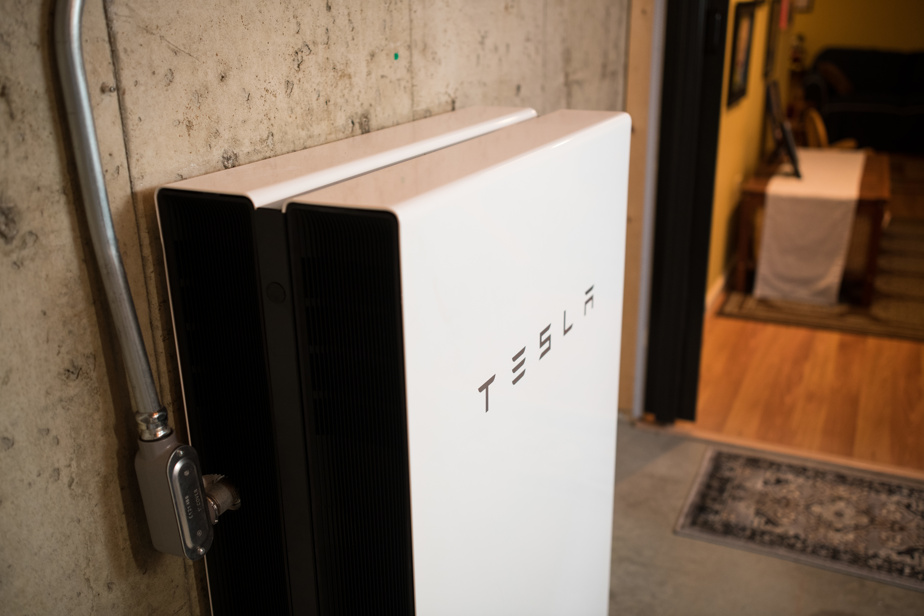
Household batteries, also known as accumulators, have advantages, but not to the point of justifying a subsidy, say experts consulted. Press.
“If we are in a place where there are frequent breakdowns, this is a very interesting solution,” believes Jean-Pierre Desjardins, a trainer in renewable energies.
“The generator is noisy, it smells and uses fuel,” but the accumulators are recharged through the electricity network, he stressed.
However, there is no government incentive to invest in this alternative solution. The Canada Greener Homes Grant only subsidizes batteries connected to a photovoltaic (solar energy) system.

Photo by Hugo-Sebastian Aubert, La Presse Archives
Co-founder and General Director of Écohabitation, Emmanuel Cosgrove
We like the idea of an electrical storage strategy among people willing to invest, but we don’t think it should be the subject of subsidies, because there is still a big environmental cost associated with it. Any form of battery.
Emmanuel Cosgrove, co-founder and general director of Écohabitation
Although the cost of lithium batteries is falling, cheap lead acid batteries are increasingly being used, testifies Emmanuel Cosgrove, co-founder and general director of Ecohabitation, which helps run sustainable projects. Not forgetting that lithium is “still a rare commodity”.
Hydro-Québec has several reasons for its reluctance to install batteries among its customers, points out Francois Bouford, a professor in the department of electrical engineering and computer engineering at McGill University. “We are talking about a very expensive installation, we need a place, an electrician. Will the Régie de l’énergie accept this in terms of rate? And we must not forget that lithium-ion batteries still have a tendency to catch fire. »
V2H option
However, this solution may become more attractive when recycling of electric vehicle batteries becomes more important, if these batteries are reassembled for sustainable applications, Mr. Bouffard said. “This is a developing business model in Germany for the industrial sector; everything on the residential side is not yet profitable. »
Meanwhile, owners of electric vehicles can already use battery power to power their homes (known by its English acronym V2H, or Vehicle-home) or network (V2G, or grid from the vehicle) – when the manufacturer’s warranty allows it.
“When you buy an electric car, you still have a $10,000 battery! », exclaimed Mr. Cosgrove.
And since the purchase of electric vehicles is already generously subsidized, “it would be a shame to duplicate investments in batteries,” argued Écohabitation’s CEO.
“We’re very much in favor of keeping our freezer running in the event of a breakdown of our electric vehicles,” but “it’s a good idea” for manufacturers to reserve subsidies for vehicles that allow V2H, because it’s too much. Public funds.’





